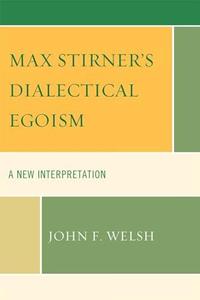
Max Stirner's dialectical egoism : a new interpretation By Stirner, Max; Stirner, Max; Welsh, John F.; Stirner, Max
2010 | 293 Pages | ISBN: 0739141554 | EPUB | 1 MB
Max Stirner (1806-1856) is recognized in the history of political thought because of his egoist classic The Ego and Its Own. Stirner was a student of Hegel, and a critic of the Young Hegelians and the emerging forms of socialist and communist thought in the 1840s. Max Stirner's Dialectical Egoism: A New Interpretation examines Stirner's thought as a critique of modernity, by which he meant the domination of culture and politics by humanist ideology. In Stirner's view, "humanity" is the supreme being of modernity and "humanism" is the prevailing legitimation of social and political domination. Welsh traces Stirner's thought from his early essays to The Ego and Its Own and Stirner's responses to his critics. He also examines how Benjamin Tucker, James L. Walker, and Dora Marsden applied Stirner's dialectical egoism to the analysis of (a) the transformations of capitalism, (

[b]FileFox[/b] https://filefox.cc/iqdk7lqd7ogn/3vxj3.rar Rapidgator https://rg.to/file/c9c2231ad4e3a4e6fe4585ae68ef3c2a/3vxj3.rar.html Uploadgig https://uploadgig.com/file/download/f4F3b5f56a636Bd5/3vxj3.rar
Links are Interchangeable - Single Extraction

 Help
Help











